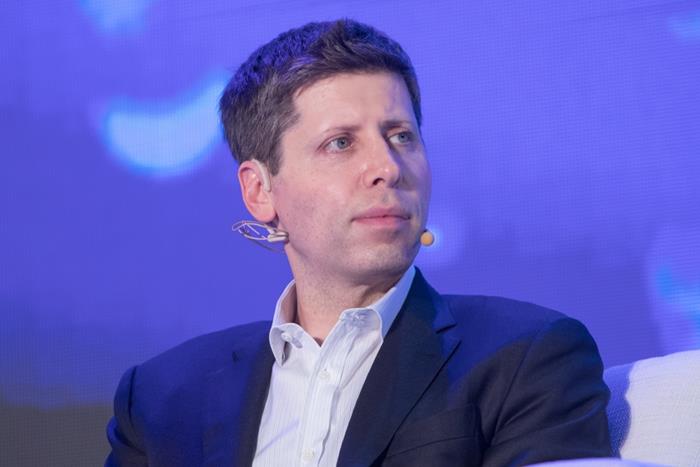Open season
The OpenAI board has had so many reboots this week that you’d think they were running the business on Commodore 64s.
The company behind AI sensation ChatGPT began the saga on 17 November by announcing that its rockstar CEO, Sam Altman (pictured), would be leaving for not being “consistently candid” with the board. Chief technology officer Mira Murati became interim CEO.
Three days later, the board appointed Emmett Shear, former CEO of US video live streaming company Twitch, as the another interim.
In the meantime, various senior people including OpenAI’s co-founder Greg Brockman—stood down in protest at Altman’s departure, followed by 700 employees demanding that the board resign.
A new board was then appointed and, at the time of writing, it was understood that Altman was on his way back to OpenAI to be CEO again.
Phew! It’s the kind of managerial musical chairs that a Premiership football team would call ‘Tuesday’.
This week, the New York Times put the whole farrago down to governance that had an “unusual, conflicted structure”:
“A non-profit board with a mission to benefit humanity oversees, a for-profit arm backed by Microsoft and venture capital firms including Thrive Capital and Khosla Ventures,” it said.
Decode all that, if you will. Just for laughs, Board Agenda asked Google’s AI chatbot, Bard, whether the governance structure was to blame for the recent disarray. The answer was remarkably diplomatic, though Bard did have this nugget: “It is possible that the board was concerned about Altman’s focus on commercialising OpenAI’s technology, which could have conflicted with the company’s non-profit mission.”
Bard concludes “only time will tell” whether the governance is a 0 or a 1 (get it? It’s binary!) but it sums up with this: “However, the recent disarray over the CEO position suggests that the structure is at least in need of some careful review and reform.” Put your claws away, Bard.
Is four the magic number?
Just in case you were wondering, the new chief executive of the UK’s audit and reporting watchdog is “relaxed” about the dominance of the audit market by the Big Four firms.
According to the Financial Times , Richard Moriarty, freshly crowned chief regulator at the Financial Reporting Council, said, in an interview, that it would not be a failure if the Big Four—PwC, Deloitte, EY and KPMG—were still dominating when he left office.
“I certainly wouldn’t see it as a failing,” the FT reports Moriarty saying. “I would ask myself: are they good audits? Are they effective?”
Right. Sounds reasonable. And their dominance might be OK. But only up until one of them falls over and the market is left with three dominating. Then we suspect there might be a problem with their dominance. And performance has not exactly been stellar all the time among the four.
Rising to the challenge
Speaking of the FRC, it has been given a new “remit” from business secretary Kemi Badenoch in a letter this week.
It’s full of congratulations for Richard Moriarty and asks him to “drive up” the quality of audit; help “simplify and streamline” non-financial reporting requirements; and support the assessment of new sustainability disclosure standards.
All well and good, but Badenoch also mentions right up front that the FRC should “contribute” to the growth of the UK economy and maintain the UK’s “leading reputation for trustworthy reporting”.
Given the government only last month canned new reporting regulations that had been in the pipeline for the past five years, Moriarty may wonder how much repair work he has to do on the country’s reputation for “trustworthy reporting”, while he’s also helping boost the economy. Still, no one said it would be easy.
Scope 3, not scot-free
Reuters claims an exclusive this week, writing that US regulators may drop requirements for big corporates to report their “Scope 3” emissions: those stemming from supply chains.
Convincing the US business world that it needs mandatory climate risk reporting has not been an easy task for rule-makers at the US Securities and Exchange Commission (SEC), so dropping the Scope 3 requirement may placate corporates—and Republicans who have argued that the SEC’s job does not include climate reporting.
Trouble is, US companies operating in Europe will have to report on Scope 3, because it’s included in the EU’s Corporate Sustainability Reporting Directive (CSRD), a newly minted piece of legislation, which could still become mandatory in the UK, pending a government review. The US is starting to look like the odd one out.





